Africa
First payments made to white farmers affected by land reforms in Zimbabwe

The government of Zimbabwe has announced an initial compensation of US$3 million (£2.3 million) for white farmers whose properties were taken under a contentious government initiative over twenty years ago.
This marks the first disbursement under the 2020 compensation agreement established between the government and local white farmers, in which Zimbabwe pledged to pay a total of $3.5 billion (£2.6 billion) for the confiscated farmland.
Between 2000 and 2001, thousands of white farmers were forcibly removed from their land, often through violent means.
While the land seizures aimed to rectify historical injustices from the colonial period, they ultimately contributed to the nation’s economic downturn and strained relations with Western countries.
The payment announced on Wednesday will address the first 378 farms out of a total of 740 that have received approval for compensation.
This amount constitutes 1% of the overall $311 million set aside for the initial round of payments.
The remaining funds will be disbursed through US-dollar denominated Treasury bonds, as stated by Finance Minister Mthuli Ncube.
He emphasized, “One of our commitments in our efforts to reform the Zimbabwean economy and settle our debts is to compensate former farm owners who lost their properties during the land reform program. We have now started to fulfill that promise.”
Harry Orphanides, a representative for the farmers, informed the BBC that more farmers are now expressing interest in participating in the compensation process.
However, a significant number of former farmers have yet to enroll in the program and continue to retain their title deeds.
The government has limited its compensation to “improvements” made on the land, refusing to pay for the land itself, arguing that it was unjustly taken by colonial powers.
It has also prioritized compensation for foreign-owned farms through separate negotiations.
In January, Zimbabwe initiated compensation payments for foreign investors whose farms were safeguarded under bilateral investment agreements.
Following its independence in 1980, which ended decades of white-minority rule, Zimbabwe saw most of its fertile land owned by around 4,000 white farmers.
The land reform aimed to redistribute land from white owners to black farmers, addressing the injustices of colonial policies that had displaced thousands of black farmers and reserved prime land for white settlers.
In 2000, then-President Robert Mugabe endorsed land invasions carried out by government forces and vigilante groups, leading to widespread international criticism.
President Emmerson Mnangagwa, who succeeded Mugabe after a coup in 2017, has been working to rebuild relationships with Western nations.
Mnangagwa has asserted that land reform is irreversible, yet he has pledged to provide compensation as a crucial means of restoring relations with Western countries.
For over twenty years, the southern African nation has been excluded from the global financial system, resulting in a struggling economy burdened by significant foreign debt.
Experts believe that the land compensation initiative represents a vital move towards improving ties with Western nations and steering clear of international sanctions against Zimbabwe.
Africa
Returning home to nothing: Displaced families in eastern DRC face dire humanitarian crisis
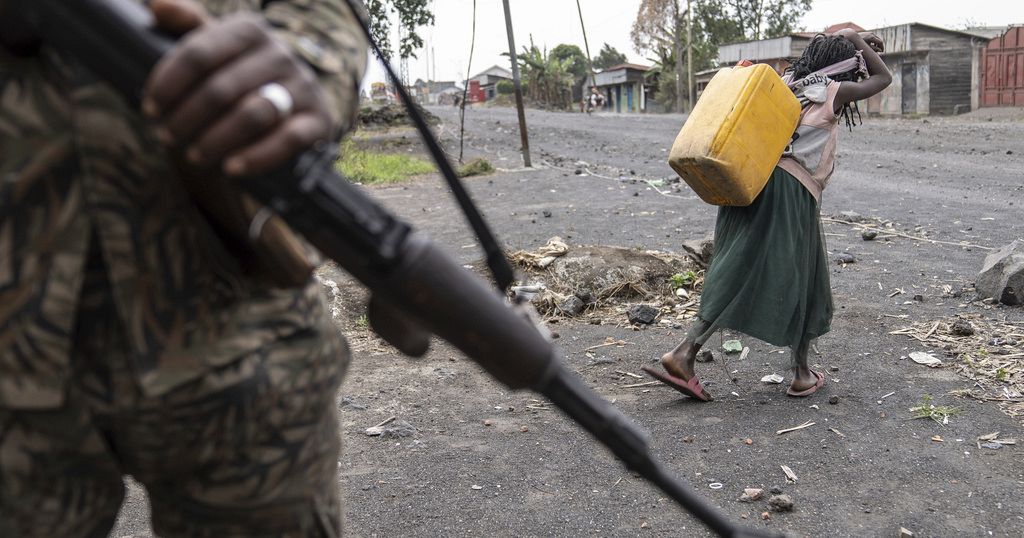
As violence continues to escalate in eastern Democratic Republic of the Congo (DRC), families returning to their communities after months—or even years—of displacement are met with ruin, hunger, and uncertainty.
“These are families that were already displaced before the crisis that has rocked the city of Goma and North Kivu more broadly,” says Hercules Kipa, Head of Emergency Programmes for Concern, speaking from Kibumba. “Following this latest crisis, these communities returned to their areas of origin. These families that are returning home don’t have land to cultivate and have lost their sources of income. They are home, but their humanitarian needs continue.”
The most recent wave of displacement, triggered by renewed violence and the dismantling of internally displaced persons (IDP) camps, has forced over a million people into precarious conditions. Humanitarian actors are on the ground, but their operations are hampered by serious funding shortfalls and a lack of security guarantees.
Beneficiaries like Mediatrice Busogi, who recently returned to Kibumba, share harrowing stories of survival and resilience. “When we returned, we found many dilapidated houses. The luckiest found their houses without doors and without roofs,” she explains. “We used tarpaulins to cover the houses and crammed into them with other families and that’s how we live so far.”
Despite the urge to rebuild, the road ahead is uncertain. For many, returning home is only the beginning of another struggle. In Sake, another hotspot in North Kivu, displaced community representative Byamungu Rukera outlines the priorities: “If we are lucky enough to return to our village, we will need to rehabilitate or rebuild our houses, have food, [and] household items until we can harvest the produce from our fields.”
The United Nations warns that the situation in the DRC remains one of the most complex and underfunded humanitarian crises globally. With more than 25 million people
Africa
Libyan leaders call for an inclusive political process
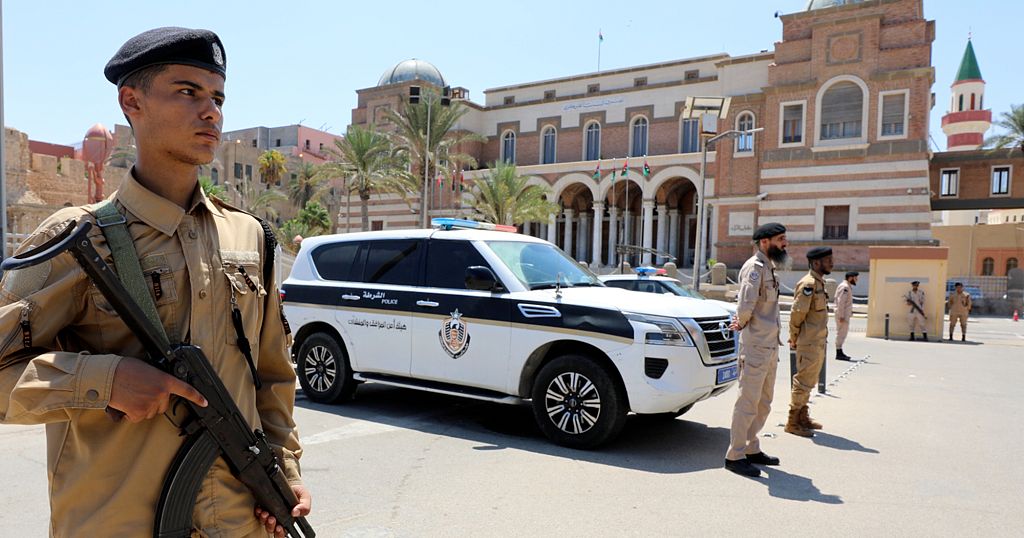
At a United Nations Security Council meeting Thursday, the new Special Representative of the Secretary-General for Libya, Hanna Tetteh, informed the members, “most Libyan leaders call for an inclusive political process and note the urgent need to end unilateral actions, unify institutions, and restore stability.”
Nevertheless, she added, “some believe a new unified government is the only solution, while others argue it will prolong the nearly fifteen-year transition period.”
After having held consultations with leaders, political parties, and civil society actors, Tetteh told the Council she intends “to maintain an inclusive stakeholder approach, ensuring that any outcome is not only Libyan-owned but also enjoys broader Libyan support.”
For his part, Libyan Ambassador Taher M. El-Sonni expressed support for “national processes which are geared towards achievement of consensus, and they should not be called into question.”
Africa
Funeral held in Kenya for TikTok content moderator
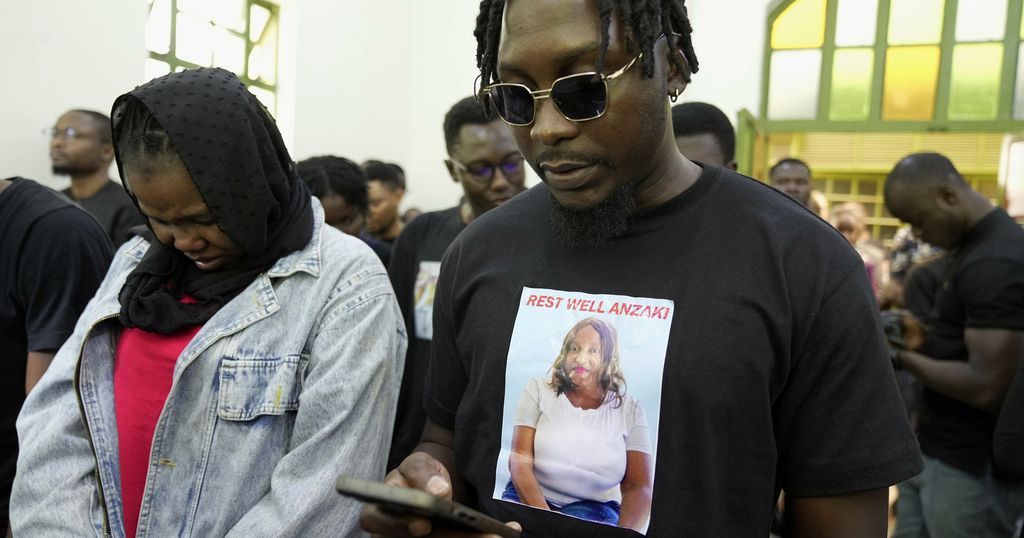
The funeral was held on Thursday for a Kenya-based Nigerian content moderator who died in unclear circumstances last month.
Ladi Anzaki Olubunmi’s decomposed remains were found on March 7 at her apartment on the outskirts of the Kenyan capital, Nairobi, three days after she failed to show up at work.
Among the mourners was her elder brother, who travelled to Nairobi for the emotional ceremony. He was overcome by grief as friends and colleagues eulogised Olubunmi as “selfless.”
Olubunmi, 43, who was employed as a TikTok content moderator subcontracted by a global outsourcing firm, Teleperformance, had complained of fatigue before her death, the cause of which has not been revealed.
She had been living in Kenya since 2022 and only managed to travel back home once, despite having an annual return ticket benefit in her employment contract.
Colleagues said she was “desperate to go home” but was denied leave. Teleperformance Kenya said in a statement in March that she wasn’t denied leave to travel home. In a tribute, a company spokesperson described Olubunmi as “a selfless, compassionate and deeply caring individual.”
Content moderators working for subcontracted firms based in Kenya have in the past described working conditions that they say include lower than average pay, lack of mental health support, long working hours and intimidation.
More than 100 former Facebook content moderators have sued the social media company for poor pay and working conditions and unfair termination of employment.
Tauheed Tayo Yakubu, a colleague of Olubunmi, described her as a champion for better working conditions, detailing how in November 2023, she staged a walkout for Nigerian colleagues demanding for valid work permits.
“She requested that every Nigerian leave the job immediately and then we all marched,” he said.
-

 Education2 days ago
Education2 days agoTrump administration revokes humanitarian parole of Spanish teacher
-

 Europe2 days ago
Europe2 days agoCody Balmer, the suspect in arson at Pennsylvania governor’s home targeted the governor for his views on war in Gaza, warrant says
-

 Conflict Zones20 hours ago
Conflict Zones20 hours agoHaiti in ‘free fall’ as violence escalates, rights group warns | Armed Groups News
-
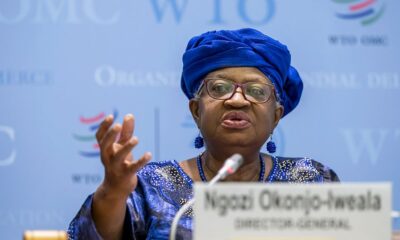
 Africa2 days ago
Africa2 days agoWorld Trade Organization says global trade could slide this year due to tariffs
-

 Sports2 days ago
Sports2 days agoNew Orleans Saints win lawsuit over fleur-de-lis trademark filed by ‘direct descendant of the Kings of France’
-

 Europe2 days ago
Europe2 days agoLive updates: Trump news, immigration and tariff updates
-
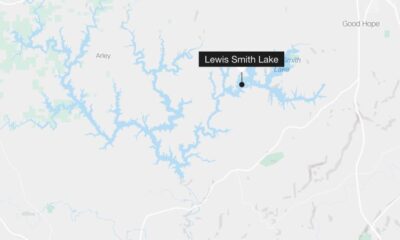
 Sports1 day ago
Sports1 day agoMajor League Fishing: Three people dead following boating crash on Lewis Smith Lake
-

 Europe20 hours ago
Europe20 hours agoUS, Ukraine and European officials hold ‘excellent exchange’ in Paris, in highest level talks in weeks




